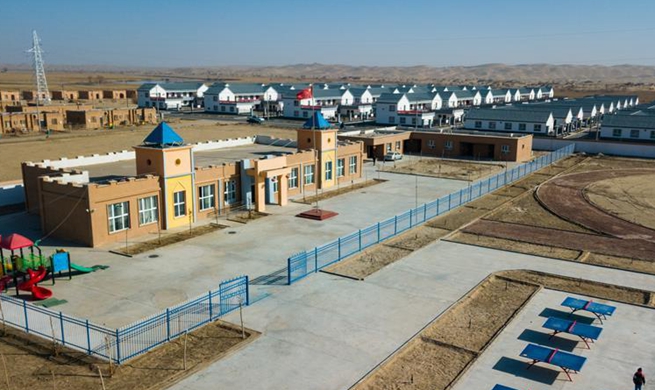UNITED NATIONS, Dec. 5 (Xinhua) -- United Nations Secretary-General Antonio Guterres on Thursday called for more international partnerships to help the world's 32 landlocked developing countries.
Many of these countries are in remote locations, do not have access to all kinds of connectivity, and are also lacking or underdeveloped, the UN chief said while urging the international community to be aware of the geographical disadvantages faced by landlocked developing countries.
"All of this combines to increase costs, decrease opportunities, and impede their integration into the global and regional economies," Guterres said at the opening of the Comprehensive Midterm Review of the Vienna Programme of Action on Landlocked Developing Countries, a document adopted five years ago.
"This has a negative impact on poverty alleviation and sustainable development," he added.
The UN chief said that these challenges can be overcome with partnerships. "We need the right policy mix, increased investment, reliable transit infrastructure, efficient customs operations and improved access and use of technology."
Landlocked developing countries have low trade integration, account for less than 1 percent of global exports, and more than 80 percent of their exports are primary commodities and natural resources. Infrastructure also remains inadequate, said Guterres.
"Foreign direct investment, which is often a critical driver for building competitiveness, has continued to decline," he added.
The midterm review is "our chance to assess and renew our work and forge greater coherence and synergy among the Vienna Programme, the 2030 Agenda, the Paris Agreement and other relevant international frameworks," Guterres said.
"Development partners need to work together to mobilize both domestic and external resources, and direct them to growth-inducing, high priority areas," he said, adding that innovative financing for infrastructure has to be scaled up.
"We should also support landlocked developing countries in building up their private sector and enhancing the business environment," he said.
With a total population of about 440 million, the world's 32 landlocked developing countries face an array of challenges mainly associated with their lack of direct territorial access to the sea and remoteness from world markets.
Their dependence on other countries for international trade via transit is an element that adds on to these various challenges.

















